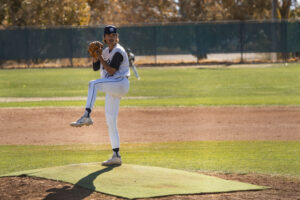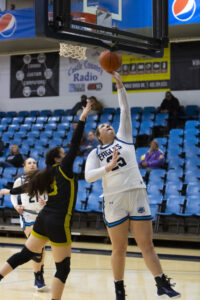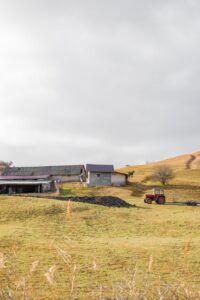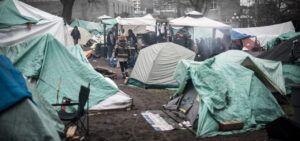Skin Cancer: It’s not just a season blight
Cold, cloudy, and rainy days are upon us, my friends. Winter will soon be here. It’s time to throw that sunscreen, hat and sunglasses in the back of the closet, right? I hate to tell you this but the sun is still out there, shining just as brightly as it was in the summer. We’ve all heard about how wearing sunscreen is so important and we’ve seen the commercials with the guy in the sun costume who informs people that he is giving them skin cancer. We laugh and go about our day, but for one man on campus, ultraviolet rays are a serious thing.
This archived article was written by: Jessica Barton
Cold, cloudy, and rainy days are upon us, my friends. Winter will soon be here. It’s time to throw that sunscreen, hat and sunglasses in the back of the closet, right? I hate to tell you this but the sun is still out there, shining just as brightly as it was in the summer. We’ve all heard about how wearing sunscreen is so important and we’ve seen the commercials with the guy in the sun costume who informs people that he is giving them skin cancer. We laugh and go about our day, but for one man on campus, ultraviolet rays are a serious thing.
Larry Severeid, an English instructor, was diagnosed with Actinic Keratoses about 25 years ago. He discovered a growth on his forehead he thought was a wart. He shaved it off but discovered that it grew back days later. He visited his doctor, who, with the help of a biopsy discovered the skin condition. Severeid now lives with it every day of his life. He must stay out of the sun, wear high SPF sunscreen and wear long sleeved shirts.
He also sees a doctor in Salt Lake every six months to have precancerous rough, red scaly sores frozen off with liquid nitrogen. These sores appear on his face, neck, arms, ears, hands, legs, and anywhere else he might have been exposed to the sun in younger years. If left untreated, they can progress to a type of invasive skin cancer called squamous cell carcinoma, which can be fatal. The liquid nitrogen forms a blister, which heals in one or two weeks. This treatment is good because it doesn’t leave scars as surgery would. He’s had a couple of close calls in his ear which had to be removed by cryosurgery. These treatments are painful and expensive.
Severeid developed this condition due to his childhood lifestyle in California. He would spend hours and hours on the beach in the sun everyday. Back then, they didn’t have sunscreen, only suntan lotion with a SPF of less than five. There were times in his childhood he was burnt so bad he should have been hospitalized, but his mother believed in her remedy and subjected the professor to a hot bath and margarine, the worst things you can do for sunburn. The treatments he suffers now are from damages done 30 years ago.
Now he can no longer participate in sunny outdoors activities with his children, he sits in the shade. He does golf occasionally. He wears hats, which he never used to do and buys SPF 50 by the gallon. He leads his life in the most normal way he can. He has a thriving teaching career here, he recently got remarried and his little girl is turning seven this week.
What is scariest about AK is that is actually quite common. It affects about ten million Americans today. It, along with melanoma, basic cell carcinoma, and squamos cell carcinoma, will cause about 10,000 deaths each year. But most skin cancers, if caught early are treatable and in most cases curable. But prevention is key.
There are many small easy things you personally can do to avoid skin damage all year round. If you’re playing or watching sports, wear sunscreen or long-sleeved shirts. I know it’s hard to get a tan with snow on the ground, but tanning beds are dangerous, so go faux if you must look like you live on the beach 24/7. Avoid being outside for a long time around noon, when ultra violet rays are strongest. The ozone layer is depleting and it’s getting worse every day. For those of you worrying about that red zit on your forehead, imagine having that about ten times worse all over your body. It’s worth the hassle!




